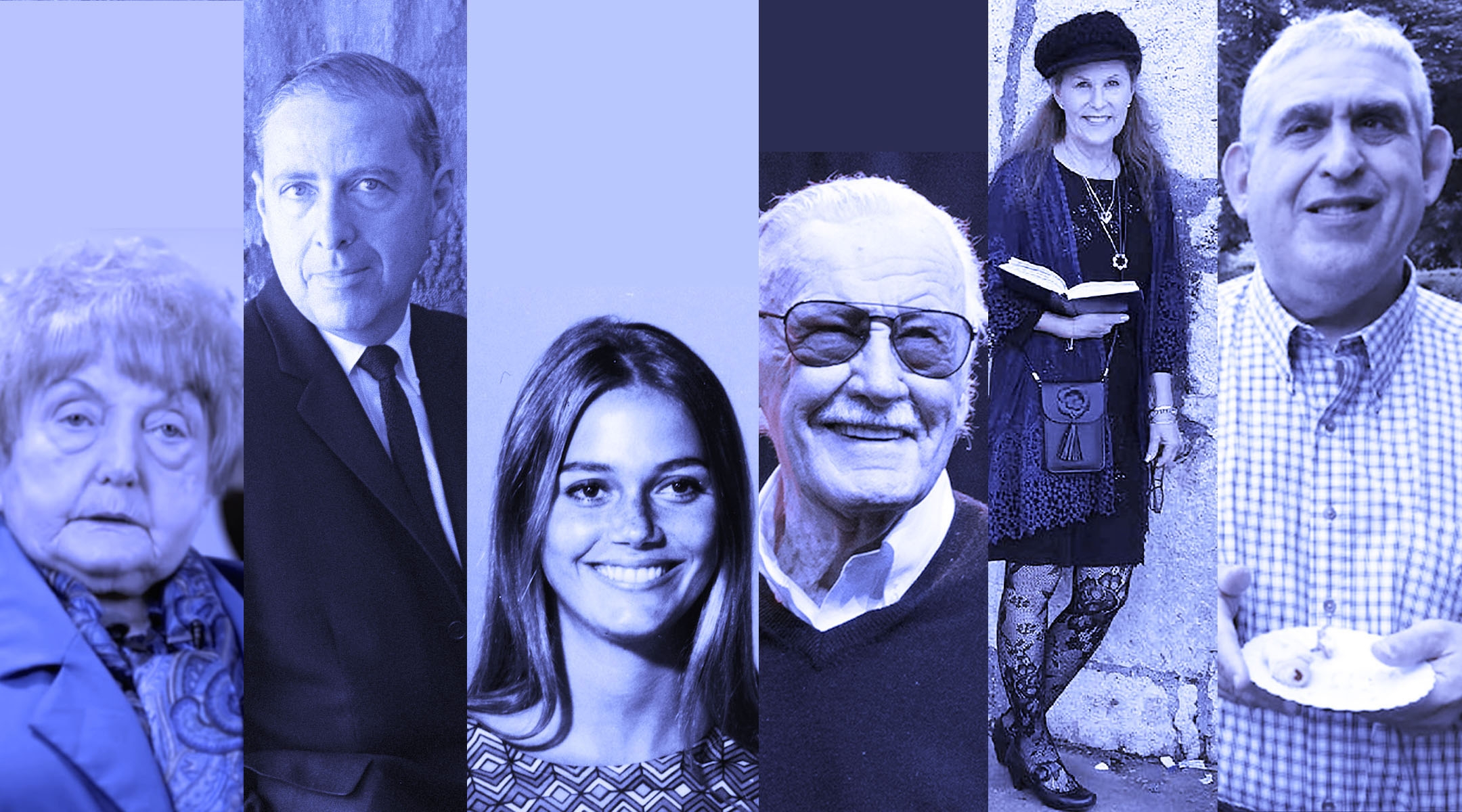(JTA) — The close of every year brings with it bittersweet reminders of the incredible figures we lost in the year that was.
This year the task of remembering the departed is particularly fraught as 12 people on the list were lost to acts of anti-Jewish violence in U.S. synagogues. Along with the shooting victims in Pittsburgh and Poway, California, are artists, activists and ordinary folks who heroically answered the call of history.
Here are some whose stories inspired us the most.
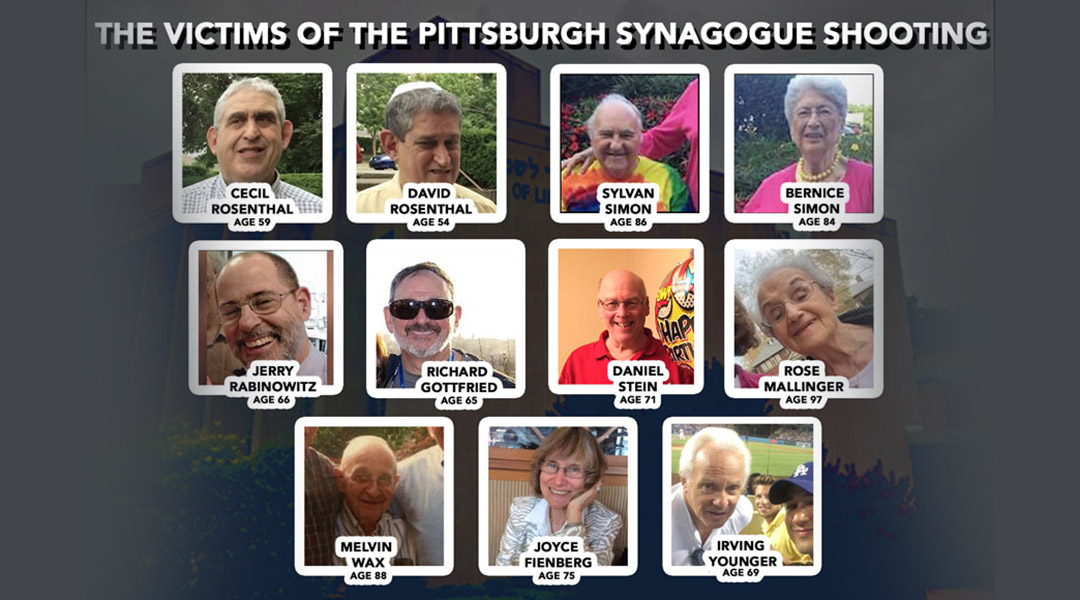
The Pittsburgh shooting victims were killed in a synagogue complex that housed three congregations. (JTA collage)
On Oct. 27, 2018, a gunman entered the Tree of Life synagogue in Pittsburgh, Pennsylvania, and opened fire while shouting anti-Semitic slogans. The shooting would become the deadliest act of terrorism against American Jews in the country’s history. Eleven worshippers were killed that morning, ranging in age from 54 to 97. Among the dead were a married couple, Bernice and Sylvan Simon, and two brothers, David and Cecil Rosenthal, along with Daniel Stein, Jerry Rabinowitz, Richard Gottfried, Joyce Fienberg, Rose Mallinger, Melvin Wax and Irving Younger.
Herman Wouk
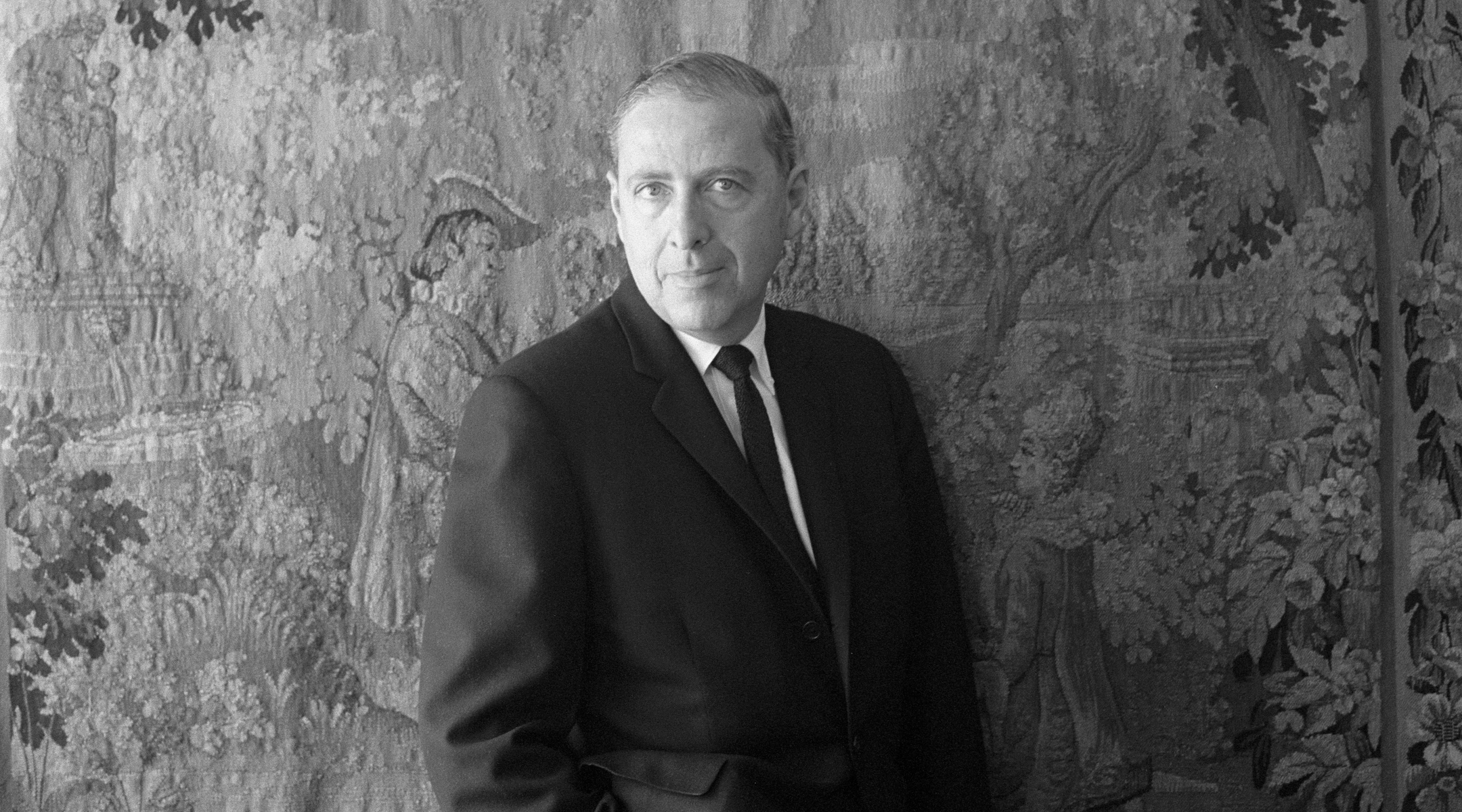
Herman Wouk, shown in 1975, during his seven-decade career helped usher Judaism into the American mainstream. (Alex Gotfryd/CORBIS/Corbis via Getty Images)
When Time put Herman Wouk on its cover in 1955, it found the Orthodox novelist’s blend of literary achievement and religious practice to be paradoxical. But over the course of his nearly seven-decade career, Wouk would help usher Judaism into the American mainstream through more than two dozen novels and works of nonfiction, several of which were adapted for the screen. He died on May 17 at the age of 103.
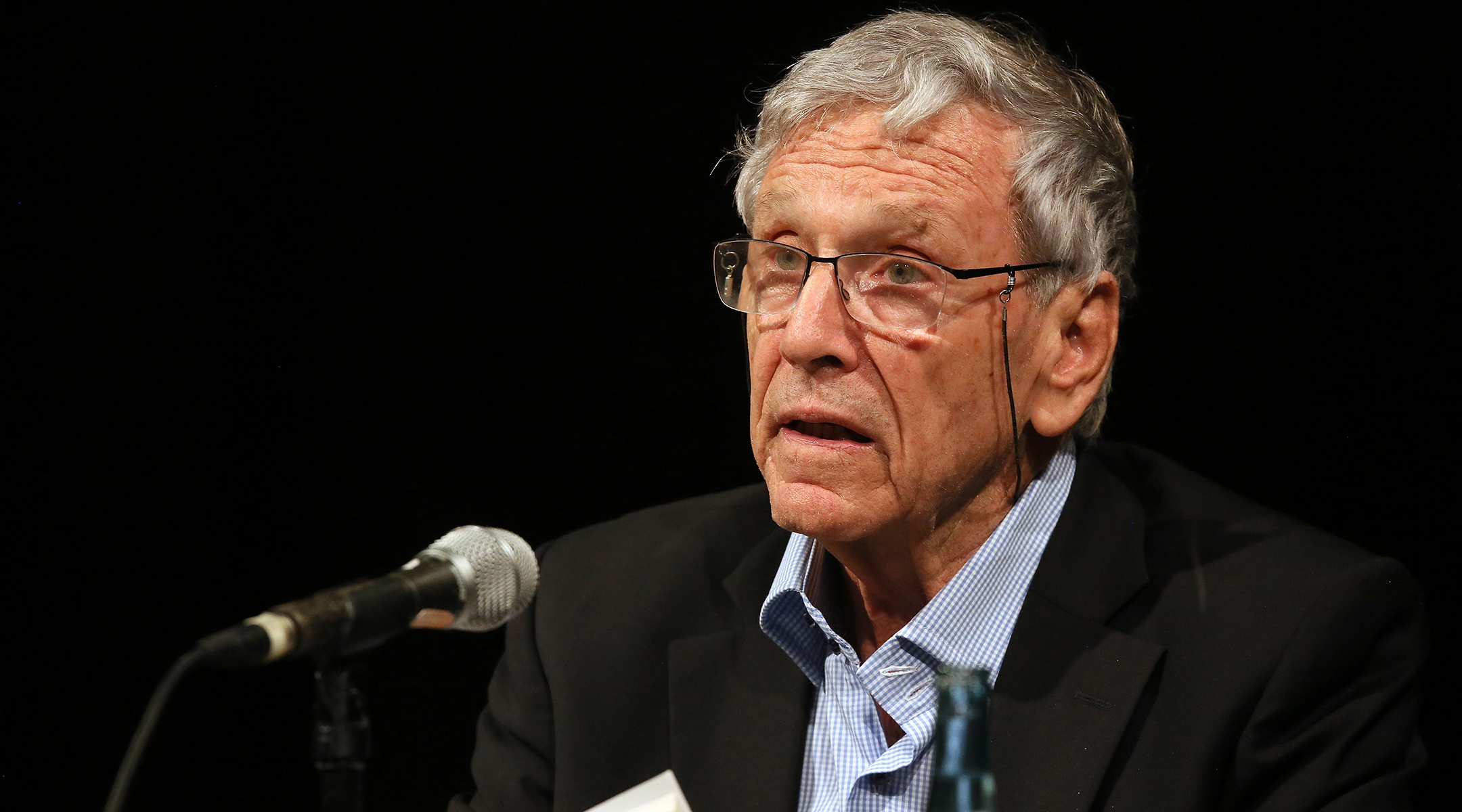
Amos Oz was a literary giant and a vocal peace activist. (Stephanie Pilick/picture alliance via Getty Images)
Amos Oz won virtually every literary prize short of the Nobel and was perhaps Israel’s most widely translated author. He was also among its most vocal peace activists, calling Israel’s withdrawal from the Palestinian territories a “moral imperative” and helping to found Peace Now in 1978. In novels like “My Michael,” “Black Box,” “Where the Jackals Howl” and his 2002 autobiographical “A Tale of Love and Darkness” — later made into a film by and starring Natalie Portman — Oz chronicled the emotional development of his young country. He died of cancer in December at the age of 79.
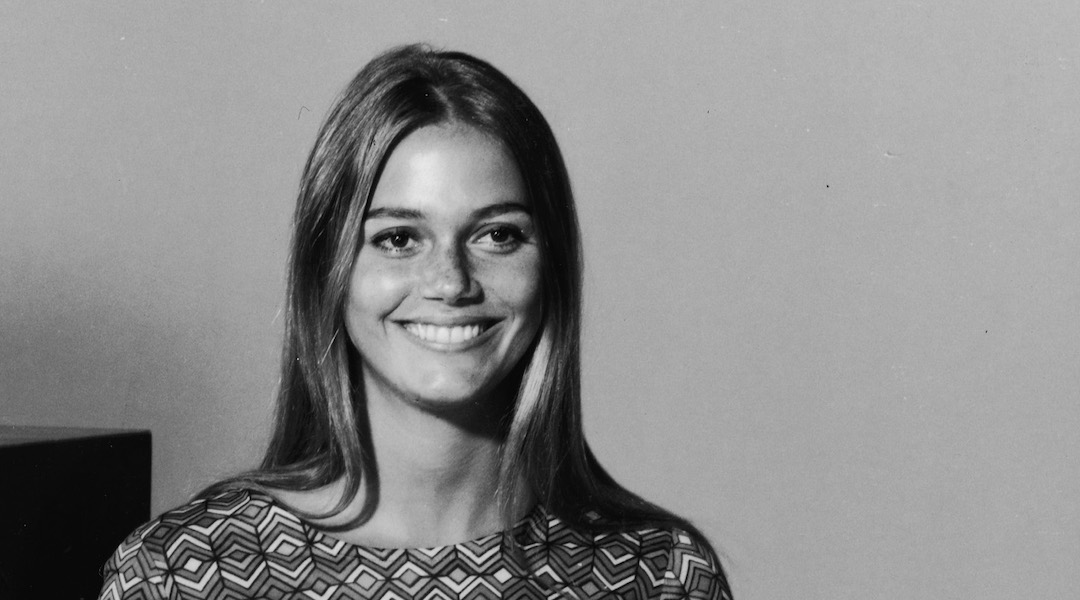
Peggy Lipton poses in a promotional photo for “The Mod Squad,” circa 1968. (ABC/Hulton Archive/Courtesy of Getty Images)
Actress Peggy Lipton was descended from Russian-Jewish immigrants and raised in a heavily Jewish enclave on Long Island, New York, but she became the quintessential American flower child as the star of the crime drama “The Mod Squad.” In 1974, she married the legendary music producer Quincy Jones, with whom she had two daughters. She died of cancer in May at 72.
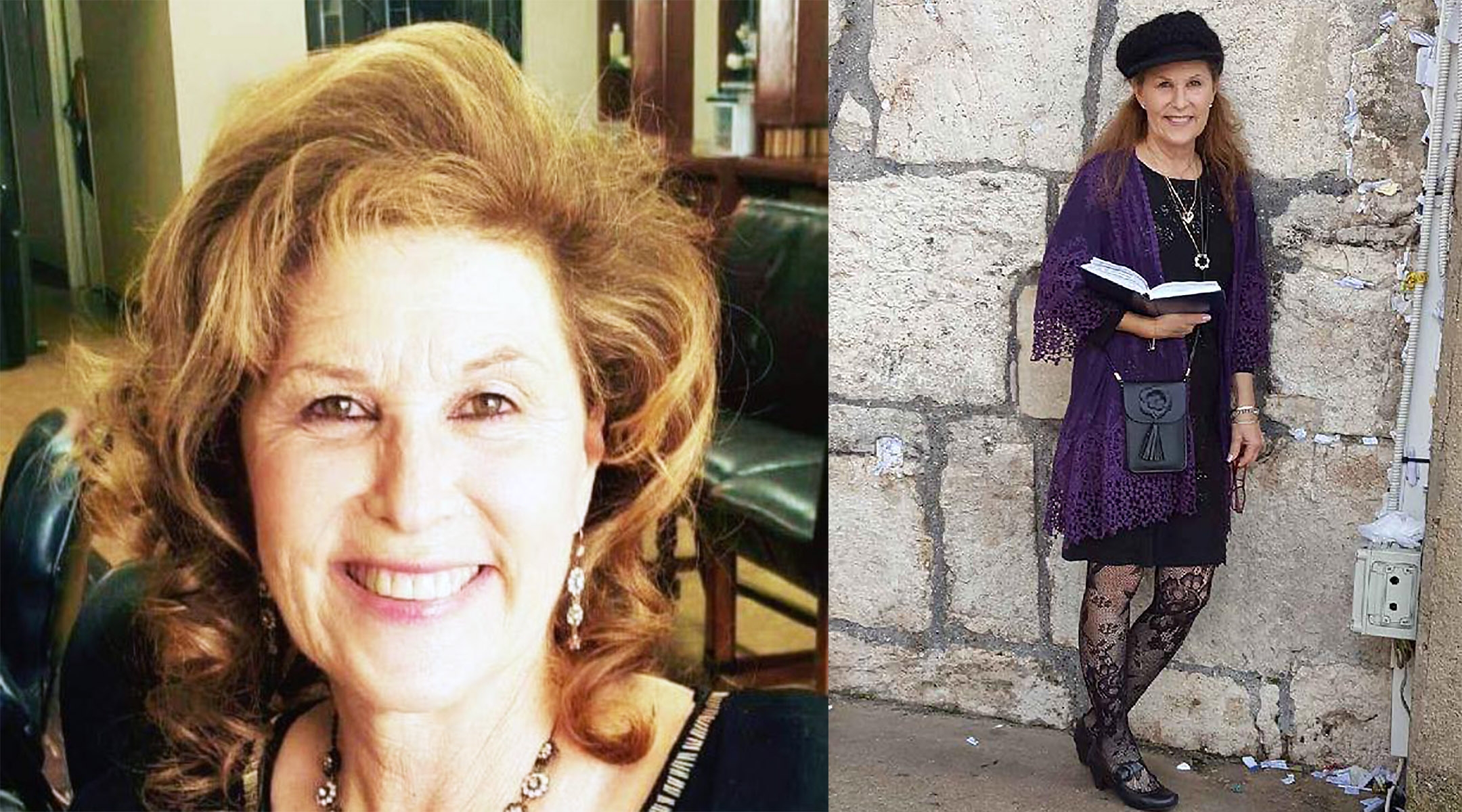
Lori Gilbert-Kaye was murdered while protecting her rabbi in the Chabad of Poway shooting in April. The attack took place on a Shabbat during Passover. (Facebook)
When a gunman burst into the Chabad of Poway synagogue in April, Lori Gilbert-Kaye reportedly leapt in front of the rabbi to shield him from the bullets. Gilbert-Kaye, 60, was the only fatality in the attack on the San Diego-area congregation. Remembered as a pillar of the community and a regular hostess of Shabbat meals filled with guests, Gilbert-Kaye was survived by her husband, Dr. Howard Kaye, and their daughter, Hannah.

Rabbi Yechiel Eckstein arrives in Israel with the first group of immigrants brought by his group, the International Fellowship of Christians and Jews, Dec. 22, 2014. (International Fellowship of Christians and Jews)
History will remember Yechiel Eckstein as the man who raised hundreds of millions of dollars, mostly from Christians, to benefit needy Jews in Israel and beyond. But to thousands of Jews in conflict zones who he helped bring to Israel, Eckstein was something of a guardian angel. Eckstein founded the International Fellowship of Christians and Jews in 1983, and through a combination of pluck, charisma and tireless legwork made unprecedented progress in raising money for Jewish causes from evangelicals. In February, he died of heart failure in Jerusalem at 67.

David Berman performs with the Silver Jews in 2006. (Yani Yordanova/Redferns/Getty Images)
David Berman was a founder of the influential band Silver Jews, which released six albums between 1994 and 2008. Berman, who battled various drug addictions over the years and survived multiple overdoses, long described himself as “ethnically Jewish.” But after a stint in rehab in the mid-2000s, he began going to synagogue and studying Jewish texts. He died in August at 52.
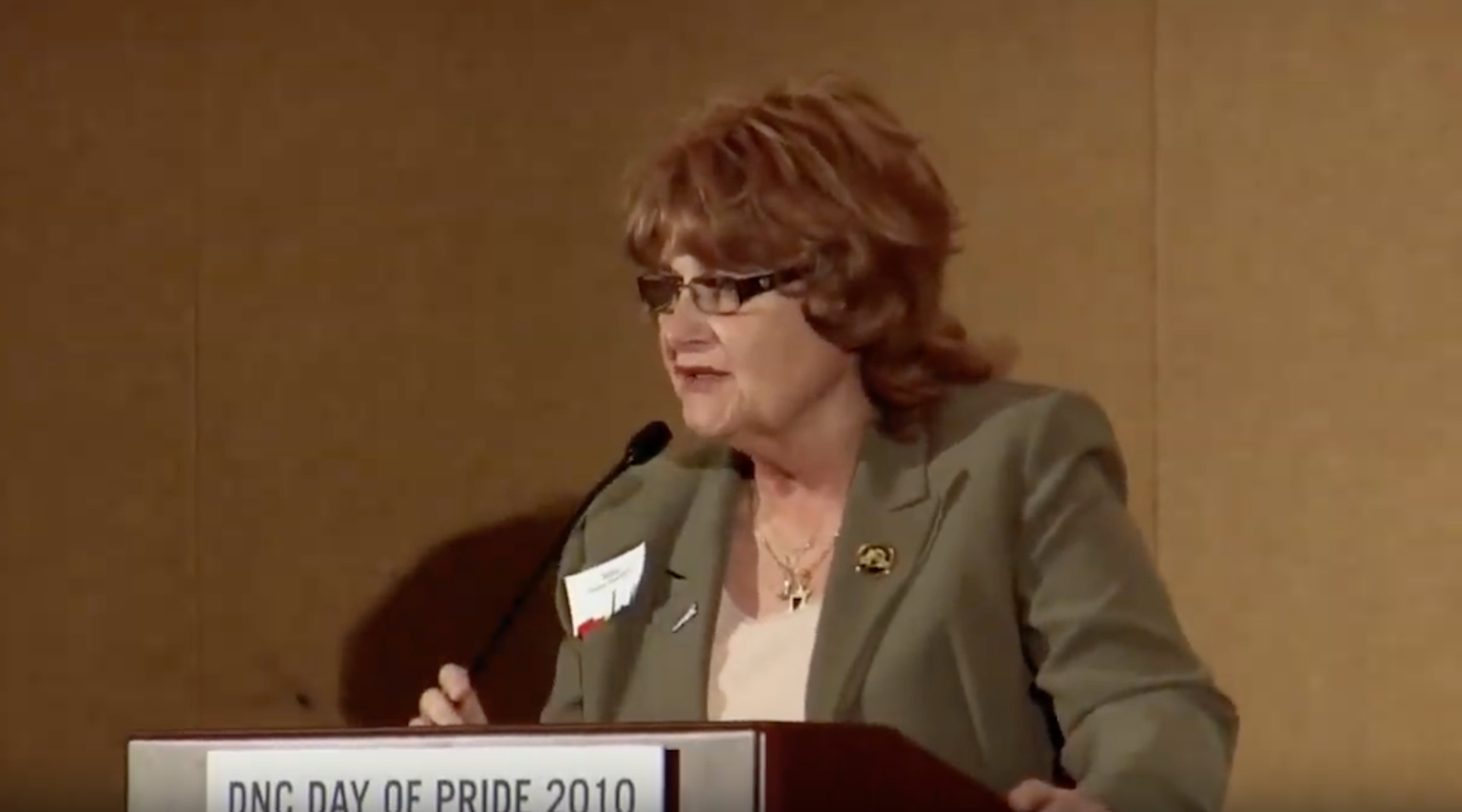
Barbra Siperstein at the Democratic National Committee’s Day of Pride in 2010. (Screenshot from YouTube)
On Feb. 1, the Babs Siperstein law went into effect in New Jersey, allowing residents to change their gender identity without proof they had undergone gender reassignment surgery. Two days later, the law’s namesake died at 76. Barbra Siperstein was an advocate for gender equality and transgender rights. In 2009, after completing sex reassignment surgery, she officially changed her Hebrew name from Eliezer Banish to Baila Chaya at a ceremony at her Conservative synagogue in Freehold.
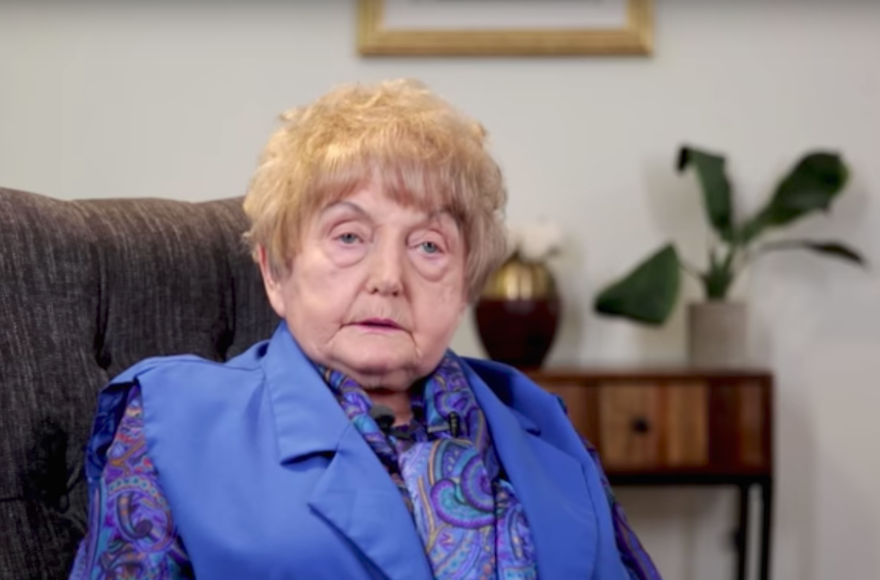
Eva Kor, who survived the twin experiments of Josef Mengele at Auschwitz, preached forgiveness. (Courtesy of Kor)
Eva Mozes Kor was born in Romania and, along with her twin sister, sent to Auschwitz in 1944. At the concentration camp, they underwent medical experiments at the hands of the infamous Nazi doctor Josef Mengele. But Kor was not the type to hold grudges, even against Nazis. She publicly forgave Mengele and made headlines in Germany for embracing Auschwitz guard Oskar Groening at his trial in 2015. Kor died in July in Poland while on a trip organized by the Candles Holocaust Museum and Education Center, which she founded in Terre Haute, Indiana, in 1995.

Stan Lee, seen in 2017, was the genius behind the Marvel comics that spawned a number of film blockbusters. (Rich Polk/Getty Images for Entertainment Weekly)
Few had as significant and enduring an impact on the comic book industry — and the international mega-blockbusters that it would eventually spawn — as Stan Lee, the genius behind Marvel comics. Among the characters he co-created with other artists are Spider-Man, the Hulk, the X-Men, the Fantastic Four, Iron Man and Thor. He was born Stanley Lieber to Romanian-Jewish immigrants. He died in November at 95.
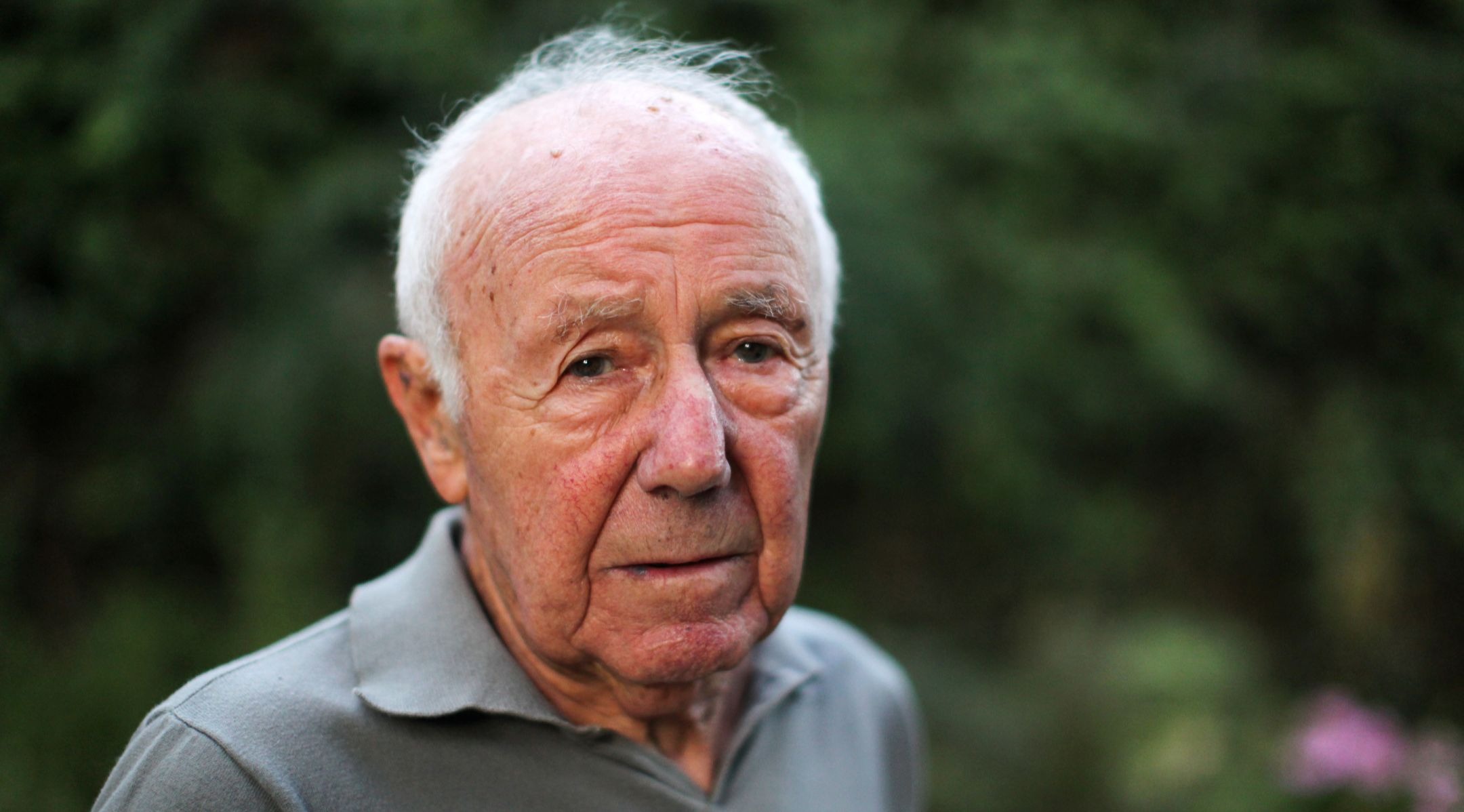
Simcha Rotem, the last known surviving Jewish fighter from the Warsaw Ghetto Uprising of 1943, outside his home in Jerusalem, July 23, 2011. (Flash90)
Few historical events more dramatically signify Jewish defiance in the face of persecution than the Warsaw Ghetto Uprising. And Simcha Rotem, who died in Jerusalem in December at 94, was its last known surviving fighter. Born Kazik Ratajzer in Warsaw in 1924, Rotem lost six members of his family when the Germans bombed his home in 1939. After the uprising, Rotem led surviving fighters from the ghetto through the city sewers, saving their lives. He immigrated to prestate Israel in 1946 and fought in its War of Independence.
JTA has documented Jewish history in real-time for over a century. Keep our journalism strong by joining us in supporting independent, award-winning reporting.
